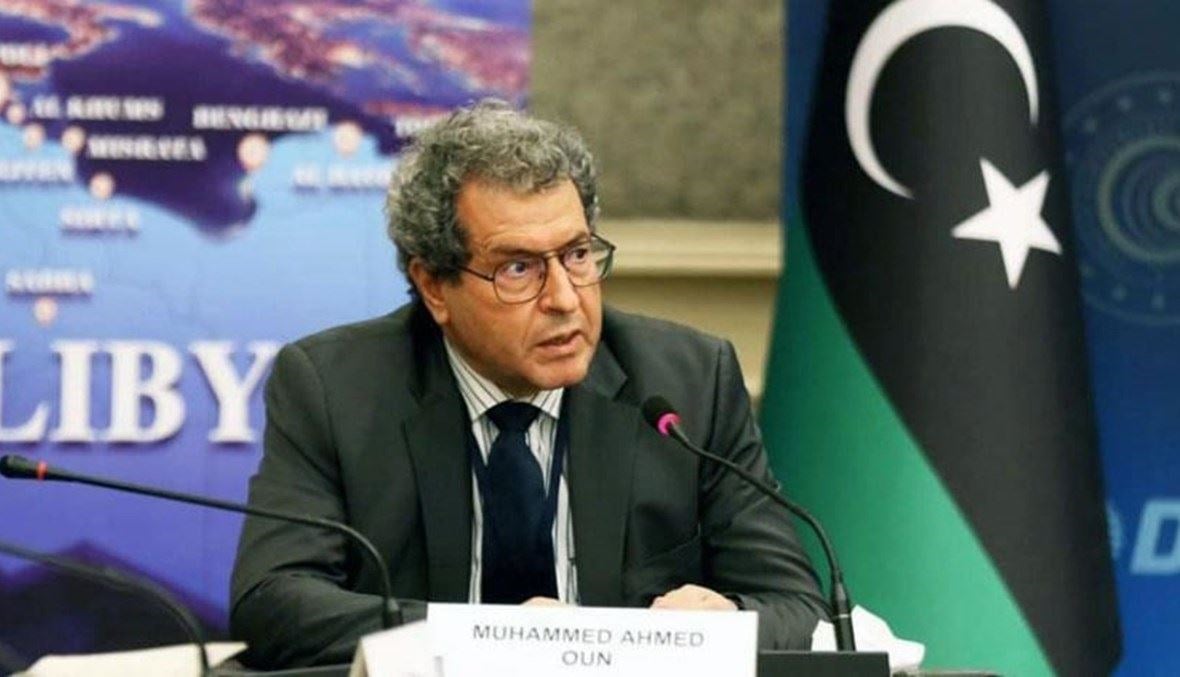Libyan Oil Minister Mohamed Aoun confirmed that increasing his country’s gas exports to Europe is out of the question at the current stage, and that it can be considered in the long term after 5 years.
He said that the export of gas from his country to Europe via Italy through the Green Stream line did not stop, according to data seen by the specialized energy platform, quoting WAM agency.
Libya pumps gas to Italy through the “Green Stream” pipeline, which was established according to an agreement between the National Oil Corporation and the Italian company Eni equally, although it is not operating at its full operational capacity.
Last January, Libya signed a deal with the Italian company Eni, with an investment of $8 billion, to develop two gas blocks in the maritime area west of Tripoli, as the deal aims to develop gas fields, whose reserves are close to 6 trillion cubic feet, within about 3 years, with expectations With a production of 850 million cubic feet per day for a period of 25 years.
Supplies through the Green Stream pipeline – which has a capacity of 755 million cubic feet per day – reached their lowest levels since 2011 over the past year, averaging about 250 million cubic feet per day.
Libyan oil production
The Libyan Minister of Oil said that his country has developed a short-term strategic plan for the oil and gas sector, aimed at raising its oil production to two million barrels per day, and includes developing new discovered fields, raising the production capacity of existing fields, in addition to developing the infrastructure that was damaged due to the events that the country went through. Libyan.
He added that the National Oil Corporation’s plan works to overcome the obstacles and challenges facing the oil sector in Libya, and focuses on many axes, including structuring the oil and gas sector and its affiliates, “the National Oil Corporation, its subsidiaries and companies, and the General Company for Gas Transmission and Distribution.”
He pointed out that the plan also aims to increase oil production by expanding oil exploration in land and sea areas, to achieve financial revenues for the state and increase its income, in addition to focusing on using natural gas to generate electricity during the coming decades, as well as working on investing oil wealth, including Shale gas, well exploited and developed to increase proven reserves of oil and gas.
The Libyan Minister of Oil stressed that the plan also aims to address environmental problems and climate change and reduce carbon emissions by stopping burning gas from oil fields and in oil operations, and focusing on producing electricity from renewable energy sources that have an economic return on the Libyan state, in addition to working on building The technical, administrative and financial capabilities and cadres of the sector, and focus on young elements through “training, qualification and development”.
Regarding the oil and gas stocks in the Libyan economic waters in the eastern Mediterranean, the Libyan Minister of Oil confirmed that the figures currently being presented are preliminary expectations that need to drill exploratory and evaluation wells to determine the stocks, saying: “We are waiting for the companies to return to start their work,” according to the agency. Wham.
Oil prices
Mohamed Aoun said that the global oil market is subject to many influencing factors, including supply and demand, the political situation in the producing countries, the political unrest in some countries of the world, and the lack of financing and investments.
He expected that the increase in demand would lead to achieving balance in the market, and push oil prices to rise during the period between the third quarter of this year 2023 and the first quarter of next year 2024.
Aoun explained that the Libyan Ministry of Oil and Gas adopted within its strategy 2021-2026 the development and exploitation of new and renewable energies, and set ambitious goals to study the possibility of benefiting from the available resources to support the national economy, and the transition to modern technologies that contribute to achieving a sustainable energy mix.
He added that the importance of transformation in the energy sector lies in facing the sector’s crises and climate changes and reducing emissions harmful to the environment, by investing in it, establishing projects that produce clean and cost-effective energy, and preserving the environment such as gas and renewable energy projects.
He pointed out that his country is currently working on developing two new solar energy projects, one in the south of Libya in “Rabana” and the second in the east of it in the “Saada” region, west of Misurata, with a production capacity of 500 megawatts for each, and it is expected that the two projects will become operational by the year 2025. In addition to projects under development to take advantage of flaming gas instead of burning it and emitting it into the air, as well as developing a strategy to reduce methane gas (energy, agriculture and waste), in light of the trend towards strengthening the circular economy framework for carbon and carbon capture, use and storage to reduce greenhouse gases and preserve the environment.

Leave a Reply